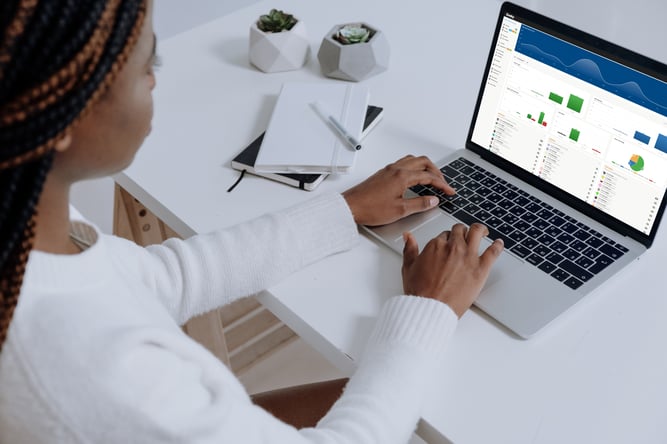Online consumer research panels: Are they the right method for your next project?

Contents
Come Together
For the purposes of this article, when we talk about consumer research panels, we are referring to any research where a number of consumers come together to provide opinions as a group on a particular subject - be it a product, service, brand or something else. Note that this is distinct from other research methods like online surveys where survey responses are completed in isolation from one another. It is also different to "online consumer panels" that refer to large online databases of people ("panel members") that are run by a panel provider as a source of participants for all types of market research projects.

Online vs. Offline
What are the changes?
All areas of market research have undergone major changes as technology has provided market researchers with new opportunities to collect meaningful insights in ways that do not involve physically talking to consumers. The new ways can be broadly described as "online", with the traditional methods being "offline".

Which of these approaches is going to be "best" must be considered on a project-by-project basis. In each case, you need to look at what will provide better quality data, be most suitable for the target audience, is most likely to yield actionable insights and fit within your budget (among many other considerations).
Forced moves online by the market research industry
Move the discussion online
No discussion of moving online can really occur without first acknowledging the "forced" move online that the events of 2020 and 2021 caused. Lockdowns and other restrictions suddenly made online the only option for research. In-person research - like focus groups - literally had to pause and online panels were the only option if similar research was to continue.
This change in how every market research panel had to be conducted was an aberration, however. What is "right" for a project has returned to looking at the particular circumstances of a project. There were three permanent changes that occurred due to people trying online for the first time, however:
-
Market researcher professionals and panel members learned what survey respondents had known for years - virtual research panels were much more convenient to participate in!
-
Clients learned how much cheaper (let's call it cost-effective) it was to find, reward and organise participants virtually rather than meeting in person.
-
Everyone found that, contrary to many long-held opinions, online was not too bad for the collection of insightful data.
Let's not get too carried away with the benefits of online just yet though. The third point is faint praise that means many given the choice would go back to in=person market research. It is likely that the second point - that clients can save money (they love that!) is a much stronger driver to continued use of some online research panel projects than anything else.
It is up to researchers to push against this desire of clients to save money to the detriment of gaining deeper insights - the never-ending struggle to promote high-quality research over "good enough" research.

The offline research panel fights back...
Offline research is back, and is not going anywhere.
The best place to start when considering whether to take a particular project online is to flag the situations where an offline panel is still clearly the best solution (and taking things online would be a mistake).
Online research panels can replicate many aspects of a physical research environment, but you should not try and make an online panel go beyond the limitations of the technology. Being on a zoom call is not the same as people sitting around a table, for example. If the research relies heavily on how the research panel members interact with each other, the moderator or the physical environment, focus groups are still king.
Some examples of projects that should stay offline are ones where behavioural data needs to be collected through observation, or the physical component is critical to the research (for example, a taste test or practical trial of a product).

Other times when offline remains the better option include when you know the target audience will be more comfortable in the "real world" (for example, older research panel members who generally avoid technology). Also, if you can negate some of the cost elements of offline research - maybe you have your own panel (i.e. an in house panel database that means you can minimise recruitment costs), or you have access to survey panels that have people in them that can also be used for your qualitative research - it may make the cost of offline more "client-friendly".
So, when are online research panels right for market researchers?
Let's consider the main reasons you should consider taking your research panel project online - for simplicity I've broken this down into the main reasons an online project makes sense.
Reason #1:
You don't have the budget
All things being equal, online projects are cheaper than offline ones. Research panels that are made up of consumers that have to come to a central location require travel, a physical room to attend and substantial organisation. Alternates are required to make up for people who don't make it, and over-recruitment is a must.
Online research panels allow people to participate anywhere - often on their phones. The effort required to "attend" is lower, so the dropout rate tends to be lower, and the required incentives can be shaved a bit as well. No physical location is needed, and getting an alternate to attend online is easier to organise at the last minute.
This means that panel research projects with limited budgets may be possible to be performed online, but out of the question offline due to the cost. This reason of course takes no account of whether the project itself really should be conducted online, but it sometimes frankly comes down to being better than nothing.
Reason #2:
For situations where an offline research panel just "doesn't work"
This probably seems like a bit of an obvious self-fulfilling statement, but the point here is to be able to identify panel research that doesn't really work unless the research panel is being conducted online.
Some examples of when online is the best answer include:
- When meeting in person would be a "bad idea". For example, a completely anonymous live chat could be conducted where people are only known by nicknames and are happy to speak freely because of the anonymity being online afforded them. Personal data is only known by the original recruiters in this situation.
- When the type of research being conducted is well suited to being online. For example, when images, videos and Web sites need to be looked at and commented on by each of the research panel members - possibly on an individual basis before discussing in the group.
- When the panel research conducted includes both group and private elements. Online makes switching between the two types of research seamless.
- When the target market would have difficulty meeting in person. An example would be a research panel of people who due to the nature of the research needs to be geographically dispersed.

These are just some examples of where going "online" makes sense.
Reason #3:
When going online gives your clients a "wow experience"
The main aims for all types of panel research are generally the provision of deeper insights, faster insights and more cost-effective insights.
Your goal is to ensure that you are the panel provider of choice for your clients. There are many ways to achieve this goal - may be through recruiting respondents that are highly engaged, being known as an expert in consumer panels, producing recommendations that make a major difference to your client's business or being known as the research panel provider that uses the most cutting edge technologies.
Going online can help with many of these areas, but the one I want to focus on here is how "cutting edge" online technologies have become recently.
Examples of "wow" you can provide your clients from an online project include:
- Providing insights from more participants, or more relevant participants, because online gives you a much greater pool of participants who can be included at a particular cost.
- Including multimedia in your reports and final presentation taken from the online project.
- Using video transcription, sentiment analysis and facial encoding to identify key themes, views and feelings across multiple research panel sessions.
- Providing an online portal for clients to see clips or transcribed comments for themselves.
- Using the results of the video analytics to quickly a "showreel" as part of your client presentations.

We all know clients are always happy to see "more" from their research budget, so keep in mind that this can sometimes be achieved by just leveraging the strengths of online panel research.
Where to from here?
Should I consider switching to online platforms?
So, what should you do next as you think about your next online consumer research panel? The answer to this question will be determined in part by where you are at in your online research journey.
If you have never done any research using online methods, the next step would include familiarising yourself with the platforms that are available to help you get your research online. Platforms such as Recollective, Further, Qualzy and Hatch Tank are just some of the options available to you.
If you already have some experience in the online arena, it is important to be aware that many advantages of online are quite recent due to technological advancements, so it is always worth keeping up with everything that is new.
Project by Project
Regardless of your current situation, the most important advice I can give you is to constantly consider how online may be able to help you and to continue to look at what will work on a project by project basis.
Remember, research is an organic process where you adapt to what you are seeing - always adapt and be flexible.
Good luck!
READY TO JOIN THE 1000+ GLOBAL RESEARCHERS ALREADY HARNASSING THE POWER OF QUALZY?
Click here to get in touch!